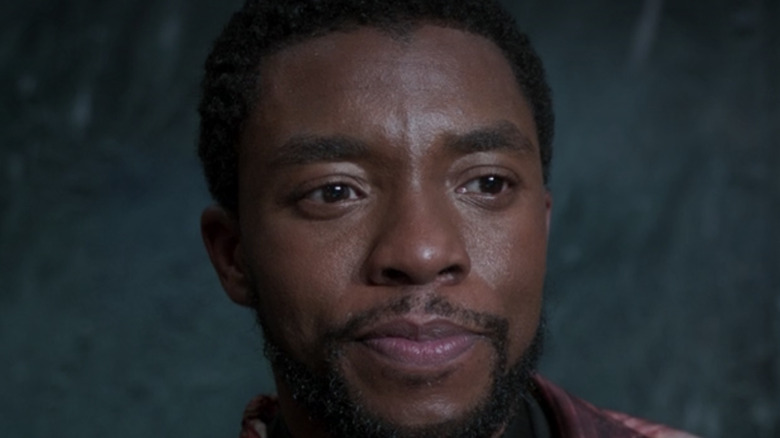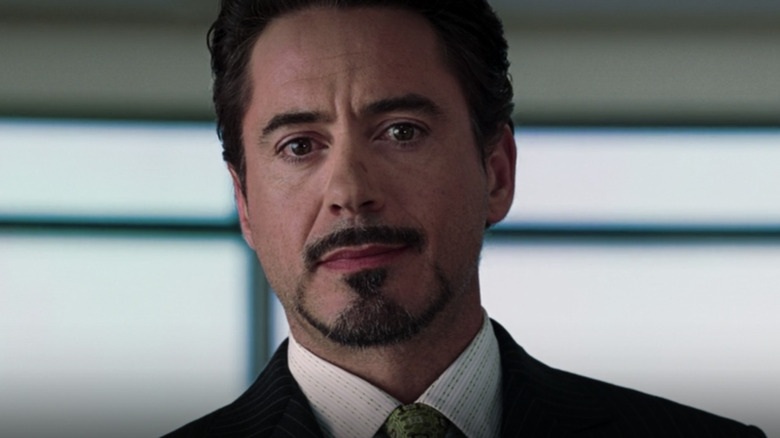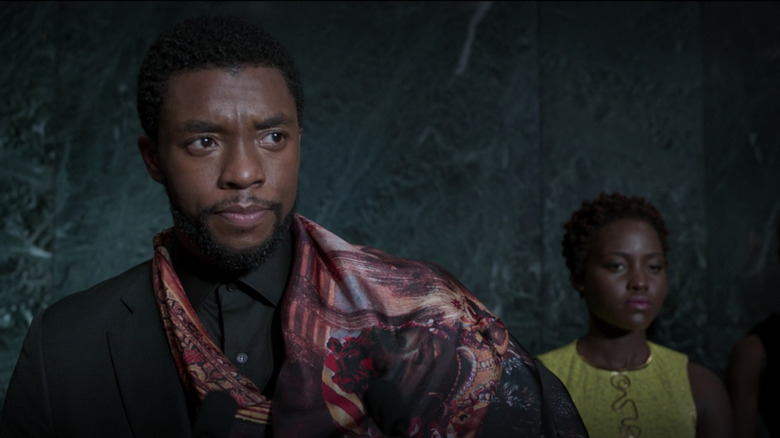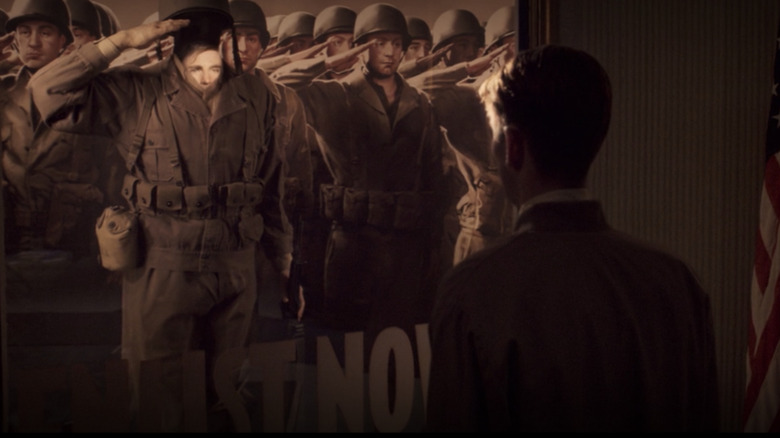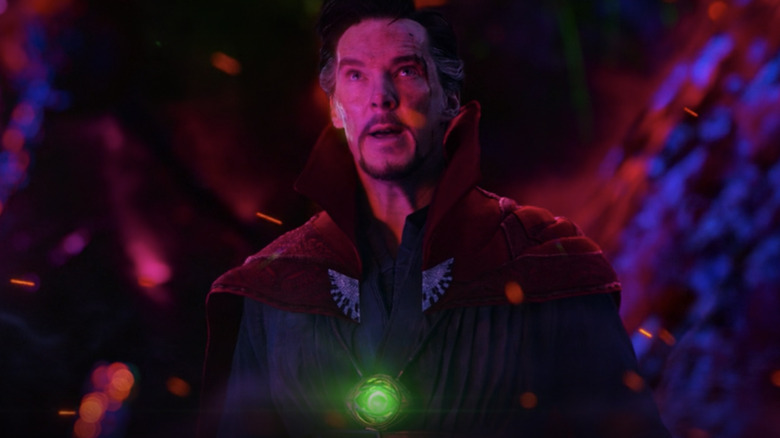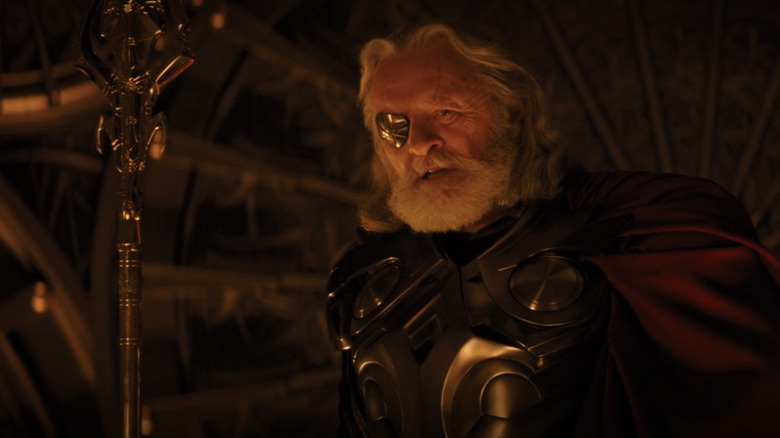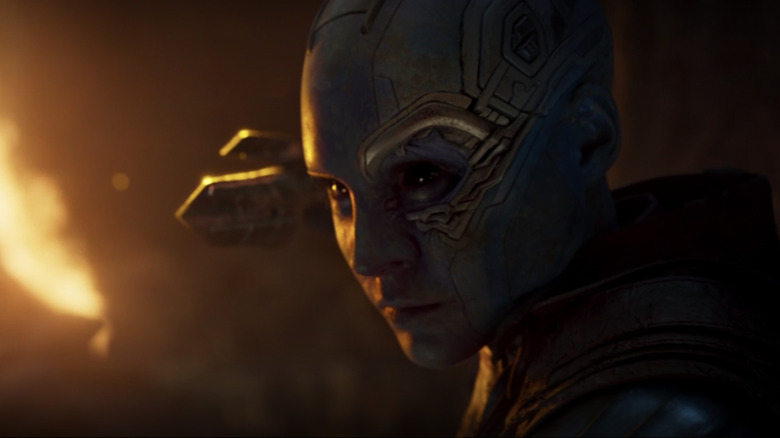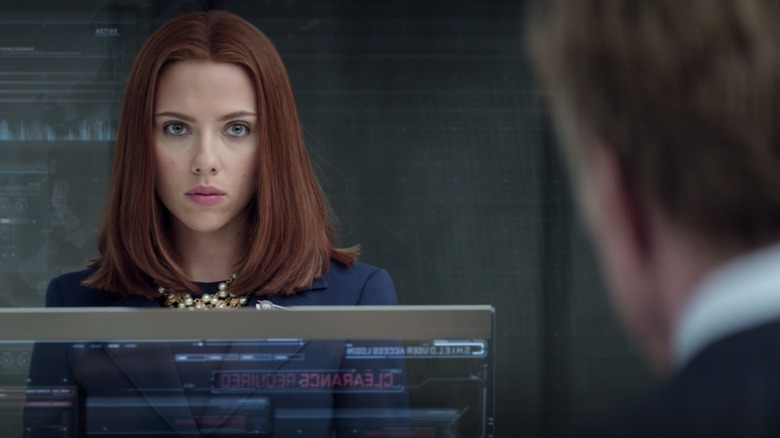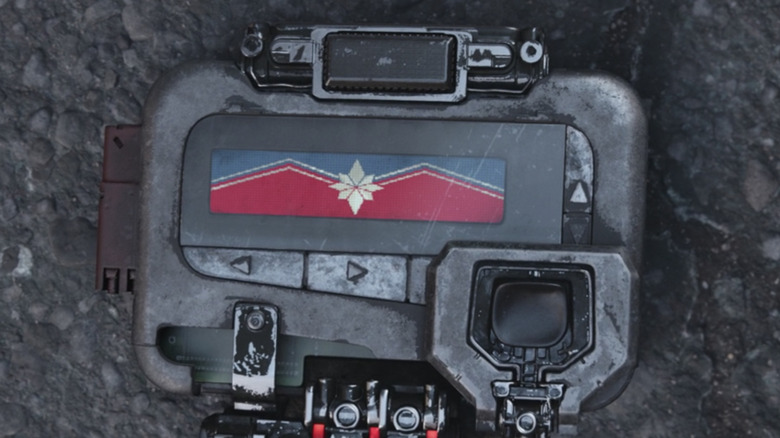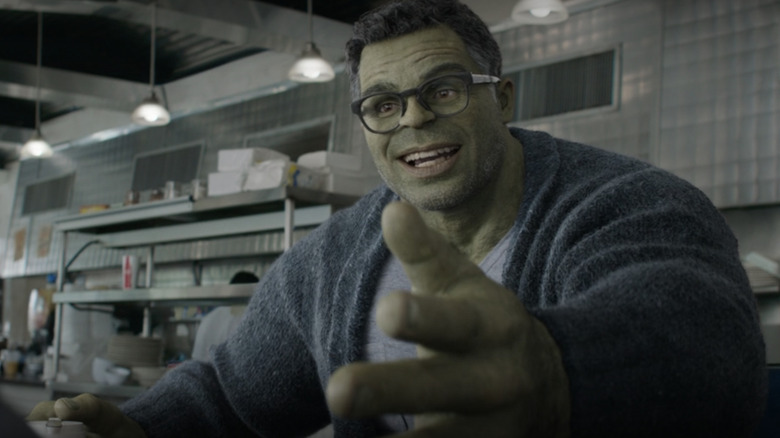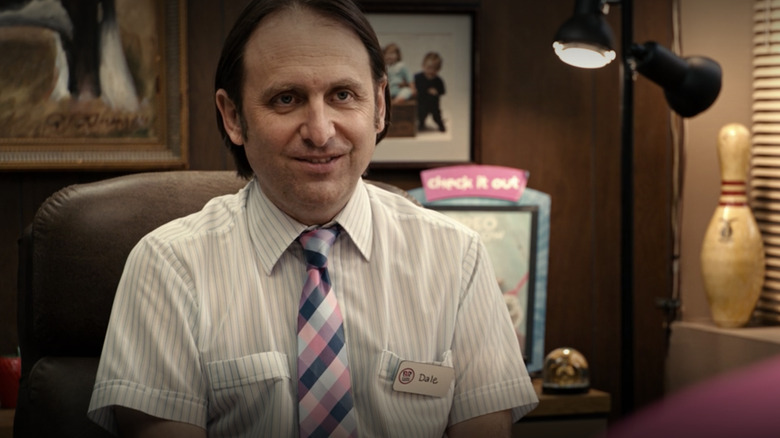Smartest Decisions Made In Marvel Movies
The Marvel Cinematic Universe is absolutely swimming in geniuses. Sometimes this genius presents itself in the form of tacticians like Captain America, Black Widow, and Nick Fury. More often, it appears as mastery of scientific fields, from central protagonists (Tony Stark, Bruce Banner) to side characters (Shuri, Hank Pym) to bit players (Erik Selvig, Helen Cho). In the MCU, even comedy characters like Scott Lang and Darcy Lewis have advanced degrees.
Superheroes and supervillains throughout the films have wildly different goals, personality traits, and abilities, and their intelligence and expertise comes in a wide variety of areas, but you'd be hard-pressed to find one that's openly stupid (with the exception, perhaps, of Star-Lord).
That said, just being smart doesn't make it a given that you're going to do smart things. Take Loki, for example: a highly intelligent, educated, capable character who almost never makes the right decision. This raises the question: What have been the smartest, most informed moves in the MCU movies? Which individual decisions made the most sense? Which led to the most good? Most importantly, which contributed most to defeating Thanos and restoring half the universe's population?
Spoiler alert: This article will discuss major plot points from basically the entire MCU. So, if you haven't seen the movies and don't want to know what happens, leaving now could be the smartest decision you'll ever make.
I am Iron Man
When we hear the word "superhero," most of us immediately call to mind a related term: "secret identity." It's been a thing ever since Superman first put on a pair of glasses — he's one person while fighting crime, another person while living his everyday life, and when conflict isn't being generated by the dastardly deeds of the villain of the month, it's being generated by the potential discovery (by friends, loved ones, or the public) of who the hero really is.
In Marvel Comics, Tony Stark has a history with this notion, frequently going back and forth between owning his heroic identity as Iron Man and hiding it. So, when the very first MCU movie started wrapping up and Tony was given the cover story of Iron Man being his bodyguard, it seemed like pretty standard superhero stuff.
Then he scrapped that idea on the spot, instead choosing to outright tell the public "I am Iron Man." It's a choice he's never had cause to regret — he's a massive celebrity, his stock is through the roof, and he doesn't have to constantly worry about keeping secrets. On a meta level, this decision becomes even more impactful when you realize that it freed the entire MCU from the tired, overused secret identity trope. Aside from Peter Parker, there isn't a single superhero in the franchise with a secret identity (and even Peter's gets blown up at the end of "Spider-Man: Far From Home").
Wakanda forever
The MCU might not deal in secret identities, but that doesn't mean there aren't things people don't know. Case in point: Wakanda, the hyper-advanced nation that has remained tucked away somewhere in the heart of Africa, its miraculous technology a closely guarded secret while the projects an image of poverty to the rest of the world.
In 2018's "Black Panther," the matter of Wakanda's isolationist tradition is a key moral question throughout the film. As the new king T'Challa ascends to the throne, many want him to keep things exactly the way they are. His ex-girlfriend, Nakia, wants Wakanda to come out of hiding and use its technology help others, while his half-brother Erik Killmonger wants to use it to dominate the globe. After Killmonger is defeated, T'Challa is faced with a vital question: Keep his country's secret, or expose its true nature and try to make the world a better place?
Ultimately, he chooses Nakia's path, and it's probably the best decision made by any world leader (real or fictional) in a long time. In the story, Killmonger represents the poisonous consequences of lies and deceit, the violent lengths to which T'Challa's predecessors had to go in order to keep the true nature of Wakanda under wraps. He sacrifices some of Wakanda's safety for the chance to do some real good, to combat the injustices Killmonger rightfully railed against and work toward a new kind of safety that comes from living in a less broken world.
Just a kid from Brooklyn
Some smart decisions take the form of a single act, meticulously planned to guarantee success. Others are the same failed act attempted over and over again, until success finally, serendipitously arrives. Steve Rogers tends to operate within the latter category, stubbornly refusing to give in at every turn, and nowhere is this clearer than when we first meet him in 1943.
Desperate to enter the United States military and join the fight against Hitler, Rogers has already been rejected on four occasions due to his small stature and numerous physical ailments. While attending the World Exposition of Tomorrow with his best friend Bucky Barnes, Steve ends up ditching his date and lying on his enlistment form one more time. "It's a fair," he tells Bucky. "Thought I'd try my luck."
That gamble ends up paying off not only for Steve Rogers, but for the world. As luck would have it, Steve's string of attempts to enlist are noticed on this final occasion by Dr. Abraham Erskine, who brings him into Project Rebirth, the super soldier program, and ultimately selects him to become Captain America. The choice to try again after so many rejections — to get up one more time than you've been knocked down — is emblematic of Rogers' character, and if he hadn't made that choice, the first and last dose of Erskine's serum would have been wasted on somebody like Gilmore Hodge. Nobody wants that.
Dormammu, I've come to bargain
On the other side of the scale from Captain Steve Rogers is Doctor Stephen Strange, master of the mystic arts, whose greatest accomplishment involves the MCU's most unique and creative climax. While Rogers' smart decision involved multiple tries at the same goal, Strange's was the weaponization of a single, brief moment in time, endlessly repeated.
In 2016's "Doctor Strange," the newly-made wizard is up against Dormammu, a monster from the Dark Dimension that the wizard librarian Wong describes as "a being of infinite power and endless hunger, on a quest to invade every universe." When Dormammu's invasion begins, Strange enters the Dark Dimension to confront him, saying he'd "come to bargain." Instead, Dormammu kills him.
Fortunately, this was part of the plan. Using the Time Stone housed within the Eye of Agamotto, Strange had created a self-perpetuating time loop in which both himself and Dormammu were trapped. After his death, Strange immediately reappeared, once again saying "I've come to bargain" before dying again. And again.
As the cycle repeated, Dormammu became frustrated, then enraged, then desperate to escape. In the end, he did strike a bargain with Strange, agreeing to leave and never come back in exchange for his freedom. It's one of the smartest ways any superhero has ever dealt with an opponent — particularly an all-powerful one — and it gave Strange some serious credibility later on, when he handed the Time Stone to Thanos as part of an all-or-nothing plan to defeat him.
Unworthy
Sometimes a hero makes smart decisions; sometimes others make smart decisions on their behalf.
It's been more than a decade since Thor, God of Thunder, saw the error of his arrogant ways after being banished to Earth by his father, Odin. These days, as a result, we tend to forget just how childish and stupid Thor really was when he first appeared. When his rash actions rekindle the threat of war with the Frost Giants, Odin is forced to bail him out of Jotunheim before he and his friends are torn apart, a humiliation that Thor follows up with a full-on temper tantrum ("While you wait and be patient, the Nine Realms laugh at us!"). Odin's response, delivered with all the fire and brimstone Anthony Hopkins can summon, is to strip Thor of his power and send him crashing down to Earth, alongside his hammer, Mjolnir — which can now only be wielded by one who is worthy.
This extreme act of parenting is one of the most intelligent things anyone has ever done in the MCU. The punishment turns out to be exactly what Thor needed to turn his attitude around and become one of the world's foremost heroes, going on to defend the Asgardian people against Malekith and his dark elves, the Goddess of Death Hela, not to mention his role in the Avengers. Odin molded a superhero that day by declaring him unworthy, and the Nine Realms owe him a great debt.
Just wanted a sister
For all the jokes, space battles, nostalgia-inducing music drops and CGI alien trees voiced by Vin Diesel, perhaps the most compelling "Guardians of the Galaxy" element is the complicated tale of two sisters. Raised in constant, violent competition, the conflict between Nebula and Gamora has grand implications for the wider MCU — and is arguably even more dramatically powerful than the story of Starlord.
The crucial choice here is the sisters' mutual decision not to kill each other. In "Guardians of the Galaxy," Gamora pleads with Nebula to join the Guardians after defeating her in combat, but Nebula flees instead. In "Vol. 2," they fight again, and while Gamora shoots up Nebula's ship so that it's about to explode with Nebula inside, she rescues Nebula at the last minute. Nebula keeps fighting, however, and finally gets the upper hand, but she too refuses to make the kill, instead revealing that, while Gamora had insisted on winning their competitions, Nebula had always just wanted a sister.
It can't be overstated how important it was that Nebula joined the side of the angels. She shines in "Avengers: Endgame," helping Tony Stark survive long enough to get back to Earth, telling the Avengers where the Soul Stone can be found, and ultimately killing not Gamora, but her own younger self. It's a reminder that choosing love over hate is always the smart thing to do.
Secrets of S.H.I.E.L.D.
Captain America: The Winter Soldier" shows up in the top five of most MCU film rankings, possibly because it features the best version of Natasha Romanoff (aka Black Widow). "Winter Soldier" is the only movie where we get to see Widow as she was meant to be — a spy, charismatic and deceptive, steeped in so many secrets she can barely tell where the lies end and the truth begins. She's not the main character, but she does get an arc of sorts, one that culminates in another of the MCU's smartest decisions.
Upon discovering the truth about the long-term infiltration of S.H.I.E.L.D. by HYDRA, Widow is sent to impersonate a member of the World Security Council, hold HYDRA leader Alexander Pierce at gunpoint, and release the secrets of both S.H.I.E.L.D. and HYDRA online. Pierce has a card left to play, however — reminding Romanoff that she'll expose herself in the process. "If you do this, none of your past is gonna remain hidden," he says. "Are you sure you're ready for the world to see you as you really are?"
Natasha hesitates, but only for a moment, responding only with "Are you?" She knows that making this information public is going to take her out of the shadows, removing the cloak of secrecy that has, to this point, shielded her. Her decision fundamentally changes both her character and the world, but it was the right choice.
The page heard 'round the universe
Of course, it would be naïve to think that Nicky Fury is ever out of secrets. As it turns out, there's one particular secret that he's kept squirreled away for a special occasion, and it's a big one. "Avengers: Infinity War" is the MCU's darkest film, ending as it does with the Avengers defeated, Thanos victorious, and half the population of the universe dissolving into nothingness. It's probably the most complete superhero failure ever put to screen, and it calls for Fury's last, most desperate response.
In the "Infinity War" post-credits scene, Fury is making plans with his subordinate, Maria Hill, when the city around them erupts into chaos as people begin to disappear. Hill herself is Snapped away before Fury's eyes, collapsing into a swirling flurry of grey dust. In that moment, Fury makes one of the smartest snap decisions in this universe — he goes into his bag, pulls out some sort of souped-up pager, and manages to send a single message before disintegrating out of existence himself.
That message of course is received by Carol Danvers (aka Captain Marvel), who Fury had encountered back in 1995. He had refrained from calling her to help against Loki, Ultron, and any number of other threats — but in the wake of Thanos, he doesn't hesitate. It's a good thing he doesn't; if Danvers hadn't gotten Fury's message, Tony Stark would never return to Earth and the population of the universe would never have been restored.
The brains and the brawn
You can't talk about undoing the Snap without mentioning Bruce Banner's decision to combine the two previously warring parts of his personality.
At the end of "Infinity War," Bruce has found himself abandoned by the Hulk, who refuses to come out and fight after getting trounced by Thanos early in the film. When we reunite with him in "Endgame" five years later, things have definitively changed — instead of being two different people in the same body, Banner and Hulk have now combined. "For years, I've been treating the Hulk like he's some kind of disease, something to get rid of," Banner says. "But then I started looking at him as the cure. Eighteen months in a gamma lab, I put the brains and the brawn together. And now look at me! Best of both worlds!"
That decision — not just to do the work in the lab, but to embrace a part of himself he had once feared — pays off in a massive way for the entire universe.
Of all the Avengers, only the Hulk is powerful enough to wield the Infinity Gauntlet without dying, and only the Hulk with Banner's mind could maintain his faculties long enough to snap his fingers and bring Thanos' victims back to life — particularly without just undoing time and killing everyone who had been born since the Snap in the process. Bruce Banner has made a lot of smart choices, but none smarter than the choice to fully accept himself.
Baskin Robbins always finds out
Here's the thing about the Avengers' victory in "Endgame." None of it — the time heist, the Blip, the final battle with Thanos — happens without Scott Lang. He's the one who gives the Avengers the idea to create a time machine based on his experiences in the quantum realm. He's the one who returns five years after the Snap and inspires the remaining superheroes to try to make things right one last time. He even has his own time machine installed in the back of Luis' van. Of course, in order to do all that, he has to become Ant-Man. And in order to become Ant-Man, he has to get fired from Baskin-Robbins.
Could Scott have returned to his life of crime, setting off the chain of events that led him to take on the role of the world's smallest superhero, if he had kept his low-wage job slinging rainbow sherbet? Possibly. But just as likely, maybe not.
Hank Pym still had a direct hand in everything that went down. But Scott was pretty determined to stay on the straight and narrow at that moment, and losing that job was the last straw. Who knows what would have happened if Baskin-Robbins hadn't lived up to their reputation and discovered his criminal record? When you think about it, half of all life in the universe now owes a debt to a weird, slightly creepy middle-management guy by the name of Dale.
